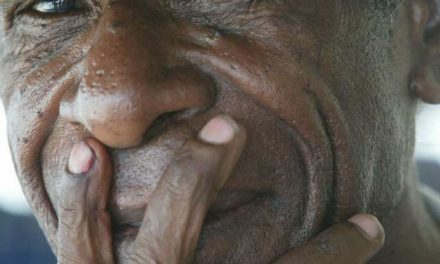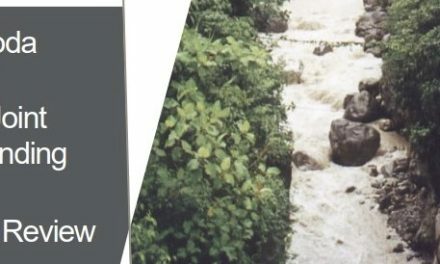The Rise, Fall and Future of Kokoda Tourism
After the PNG Kokoda Track Authority (KTA) was established by the Minister for Provincial and Local Level Government Affairs in 2004, the number of trekkers rose dramatically by 225 percent from 1584 in 2004 to 5146 in 2008.
At that stage neither Government was prepared to provide any financial support so the management was left to a former Australian Kiap, Warren Bartlett, on a salary of $11,000 (K25,000) with no office support (apart from a part-time assistant), and no allowances.
Mr. Bartlett was required to safeguard the funds collected for trek permits and assist villagers with the basics such as plastic toilet pots and portable ovens to help meet the demands of trekkers.
He also had to deal with increasing demands from more than 100 landowners, more than 50 tour companies, and various government officials at National, Provincial and Local Level.
But his greatest challenge was dealing with a Board of Directors which became increasingly corrupted as trek fee income escalated.
I then coordinated a discussion paper amongst our Adventure Kokoda trek leaders, mainly ex-military, to assist the PNG Government and the KTA in developing policy for what was emerging as PNGs most popular tourism destination.
Our paper called for:
• A booking system for campsites along the track
• Training programs for trek guides and carriers
• Training programs for campsite owner/operators
• A grading system for campsites
• Catering programs to assist villagers in food preparation for trek groups
• Programs to assist villagers in obtaining added value from trek groups
• A liaison system to ensure educational and health needs of villagers are satisfied
• Codes of conduct for managers, trek rangers, trekkers, trek operators and campsite owners
• A dispute resolution system
• A financial accounting system independent of the management agency for the track
• An independent auditing system
On 10 August 2007 the Australian government announced that the listing of the Kokoda Trail as a place of significant historical interest.
This is a welcome and timely initiative given the challenges we face in ensuring the Kokoda track is properly honoured and managed.
This paper will address the issues confronting the Kokoda track today. The information is based on the observations of a number of experienced trek leaders over the past two years.
It is clear that the organization established to manage and administer eco-trekking operations across the Kokoda track (the Kokoda Track [Special Purpose] Authority) is inappropriate for the proper development of the emerging industry. It is also clear that the rapid increase in trekker numbers and the threats from mining and logging activities along the track could endanger the potential for Kokoda to be a world class eco-trekking experience.
Our research indicates that the listing of the Kokoda Trail as a place of significant historical interest to Australia is largely symbolic and more needs to be done to protect war relics along the track.
This discussion paper suggests the management of the track should be removed from Local and Provincial Government level and re-established on a national level as a component of a PNG National Track Authority responsible to the Minister for Tourism.
The paper also suggests the Australian government should fund an organization to manage the Kokoda track for a period of three to five years. This organization would work in partnership with the PNG government and authorities to develop:
• legislation for areas of military historical significance as National Memorial Parks; and
• regulations, procedures and organizational structures for the proper management and administration of the Kokoda track.
The Australian government should also consider an exchange program between the PNG and Australian National Parks and Wildlife Service. These initiatives should be funded through AusAID and involve long-term programs for PNG rangers to work in our parks and for qualified Australians to work within the appropriate PNG Department in an advisory capacity.
It is interesting that as of 2023, 16 years on, not one of the above suggestions had been adopted!




